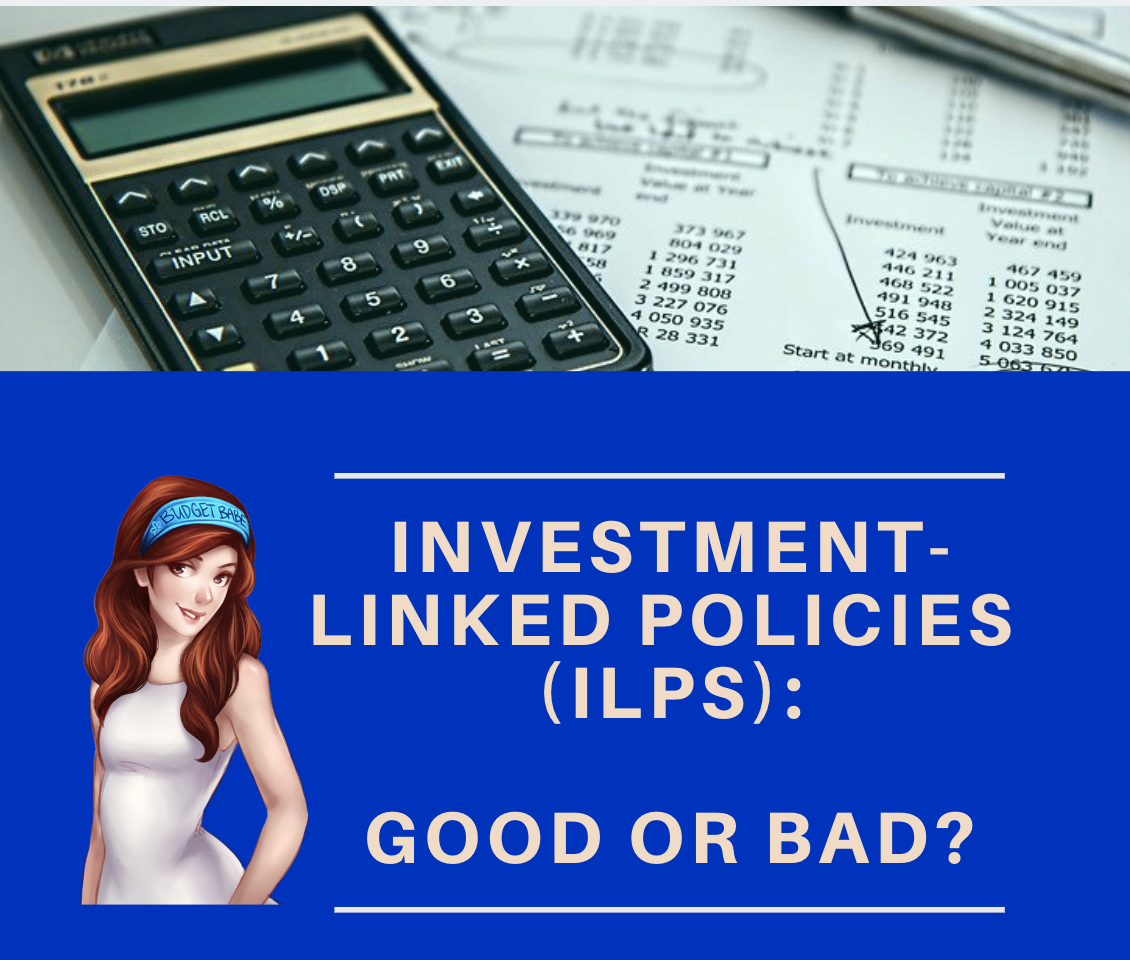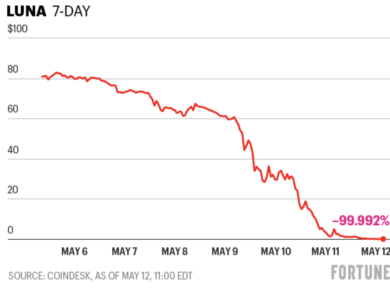I’ve previously written on why I cancelled my investment-linked policy (ILP), and provided another reason based on the way allocations are seemingly done in ILPs.

Since then, I’ve only been getting much flak (mostly from insurance agents) about my stance on ILPs, and I’ve been pressured to write a post showing the flip side of it since there are no bad products, but only bad advice, correct?
So here’s the other side, but before you read the details, you ought to first know a few things:
- My stance on ILPs still hasn’t changed, and I’m still not keen on ILPs and won’t get one for myself. However, over the past few years, I’ve come to realise that there are some (a very, very small group of) people who might be suitable for them.
- I’m not a financial advisor so this should not be taken as financial advice. If you have any questions regarding your own policies, please speak to a licensed advisor whom you can trust to operate in your best interests.
- This is NOT a sponsored article.
Here are some selling points that agents usually use to justify your purchase of an ILP, and my rebuttal towards them:
- “Your premiums remain the same even though your cost of insurance goes up”
This is true, but only because of the assumption that your invested capital will be generating good returns that are more than sufficient to cover the cost of your insurance. Should your investments do poorly and your premiums are no longer sufficient to pay the mortality charge, then your policy might just lapse.
- “Your money is achieving not one, but TWO goals for you! Insurance plus investment, all in one product”
They just don’t tell you about the higher costs involved, which can go as high as 18% in the case of my friend here. And you guys already know about the costs involved in mine…
- “It can give you higher potential returns than simply getting a term or whole life insurance plan”
Those returns aren’t guaranteed, my dear. I terminated mine early so I certainly didn’t get these higher returns that were promised to me, but my friend here held onto hers for a total of 9 years and 3 months. Guess what was her annualized return? 0.92%!
Since ILPs are often compared to Whole Life Insurance, so I’ll use that as a basis of my comparison here as well.
 |
| I met an insurance advisor who’s pretty active in the Seedly community to understand his take on this, and this was the argument he presented to me. |
Do note though, that I’m an advocate of term over whole life insurance as it is a more cost-efficient method of getting the same level of protection, and you can read my take on whole life vs. term insurance here. However, a case can be made for whole life if you’re looking to combine with critical illness protection, as I recently outlined in the linked post.
So are ILPs pure evil? Not exactly.
Two benefits in ILPs that I can think of would be:
- Discipline – for someone who is totally not disciplined in their finances (don’t we all know some folks like that?), an ILP helps to address this gap by taking a sum of their money each month to cover for both insurance and investment.Of course, I’d argue that you should always keep your investments and insurance separate, but I’ve met people who are too busy / lazy to pick up investments even if I simplify it down to an ETF or even a Regular Shares Savings Plan. For these folks, perhaps a combination of term insurance and a pure investment ILP might just work, although they’ll essentially be paying someone else a fee to manage their investments for them.
- Access to investment funds – some ILPs offer access to exclusive funds that you’ll be hard-pressed to find anywhere else (unless you have a sizeable investment amount to give to the fund managers) and at a lower upfront capital, too. Others offer free fund-switching, which isn’t something you can always get in the real world when you’re doing your own direct investments.
But here are the types of folks whom I don’t think will be suitable for ILPs:
- Active traders / investors – if you’re already doing direct investments, why pay someone else to do it, unless you’re absolutely sure that they “confirm guarantee chop” can generate higher returns for you?
- Folks who aren’t interested in the ILP’s underlying funds – you can check out the whole list of funds that your ILP offers, but be forewarned that that’s a pretty long list. If none of them appeal to you, then you’re better off without.
- Naive fresh graduates who buy ILPs from their friends who are fresh insurance agents – one benefit of ILPs lies in how well you and your agent work together to manage them. The best agents constantly monitor the various funds, provide you with updates, and sometimes even reach out to the respective fund managers to understand their performance or strategy in order to evaluate if it’ll match yours. And while age and experience is certainly not a good gauge of how financially savvy your advisor is, you ought to question what advantage your friend can offer you in contrast to you doing your own investments.For folks under this profile, you might just be better off investing in ETFs/RSS plans while learning how to do your own investments. And you might eventually just find that you enjoy investing better than leaving someone else to manage your investments, too.
TLDR: So are ILPs good or bad?
ILPs aren’t bad financial instruments per se, but they’re not suitable for everyone or anyone. A lot of the online literature points to ILPs as a bad idea, and I sought out to hear from the other side without bias.
If you lack discipline in your savings and investments, and can’t even be bothered to invest into a low-cost ETF or RSS plan, then an ILP might just be the vehicle for you, at a price. You’ll be paying the impact of these fees for having someone manage your investments for you, but it’ll be better than if you didn’t do any investments at all.
However, the main reason why ILPs aren’t fantastic is largely due to their high costs involved in paying your agent, the insurer, and the fund manager, to manage your money for you. These are fixed expenses, which means that no matter whether your policy makes money or not, these people still get paid. You, on the other hand, might get less of your capital back if your ILP funds do not perform well, although many of them will tell you otherwise when selling you a plan.
In investing, costs are always real, whereas returns are never guaranteed.
If you’re already stuck with an ILP and you’re contemplating whether to terminate it, speak first to your financial advisor, or find another agent you trust who can advise you (without selling you a new ILP or any other policies). As for myself, I cancelled mine (as you can see from my story here).
There are cheaper and more cost-efficient ways to get insurance and investments. For me, I do it through term insurance + investments in ETFs, bonds and stocks. I don’t see a need for an ILP in my own life and prefer to do my own investments instead.
What about you?
With love,
Budget Babe







2 comments
Hi Budget Babe, what if instead of terminating existing ILP plan but leave it as on "Premium holiday" mode, what's your take on this?
Hi elf! I'm not sure, it depends on your plan's details and how the returns will work out for you as well. I suggest that you speak with your agent who sold you the ILP about this, as he/she will know your financial circumstances better than I do! And if you doubt their word (cos they have a vested interest to get you to keep your ILP after all lest it affects their commissions), you might also want to take it to a second insurance agent to get their take on it before you make a decision 🙂
Hope that helps!
Comments are closed.